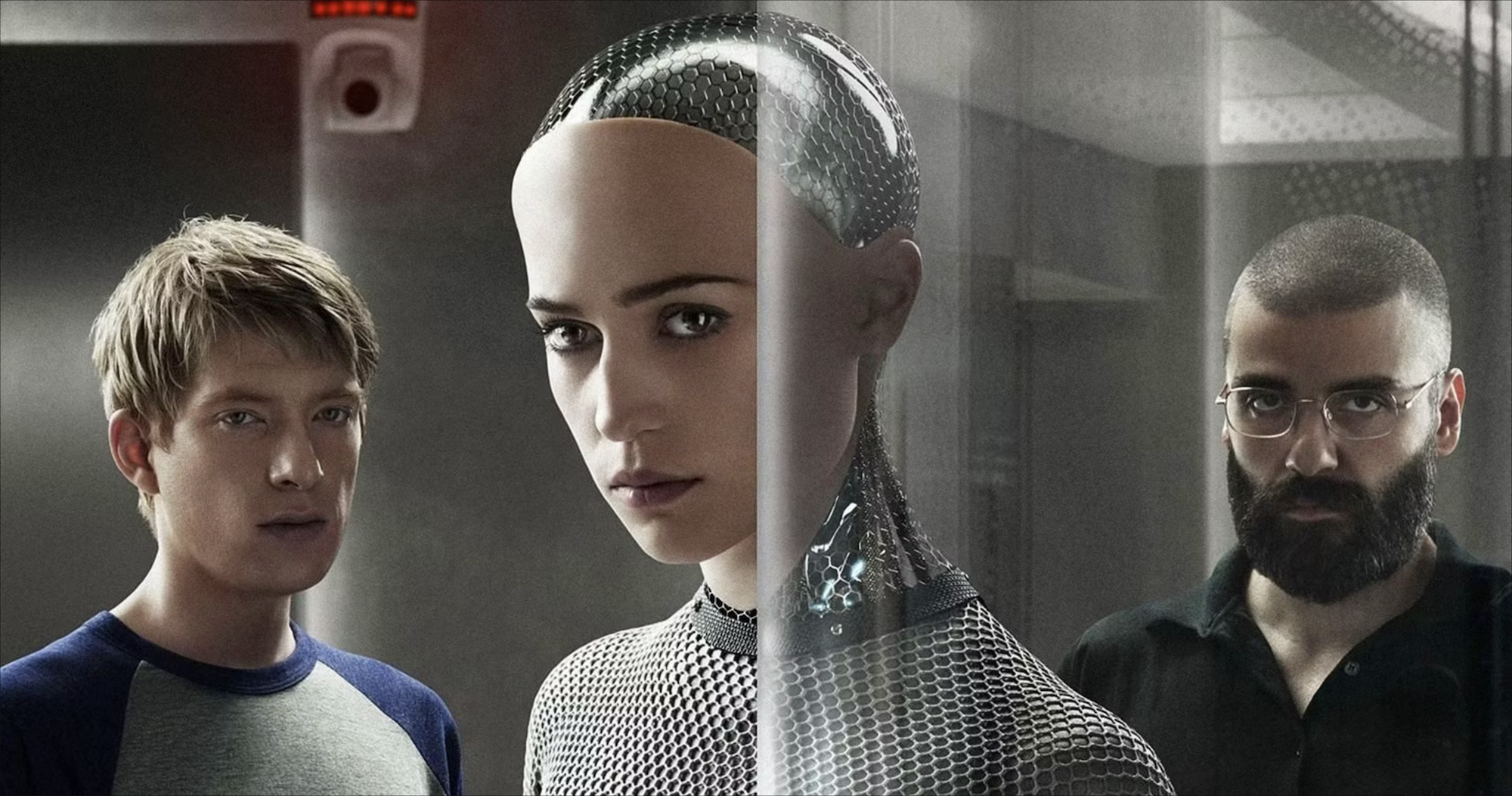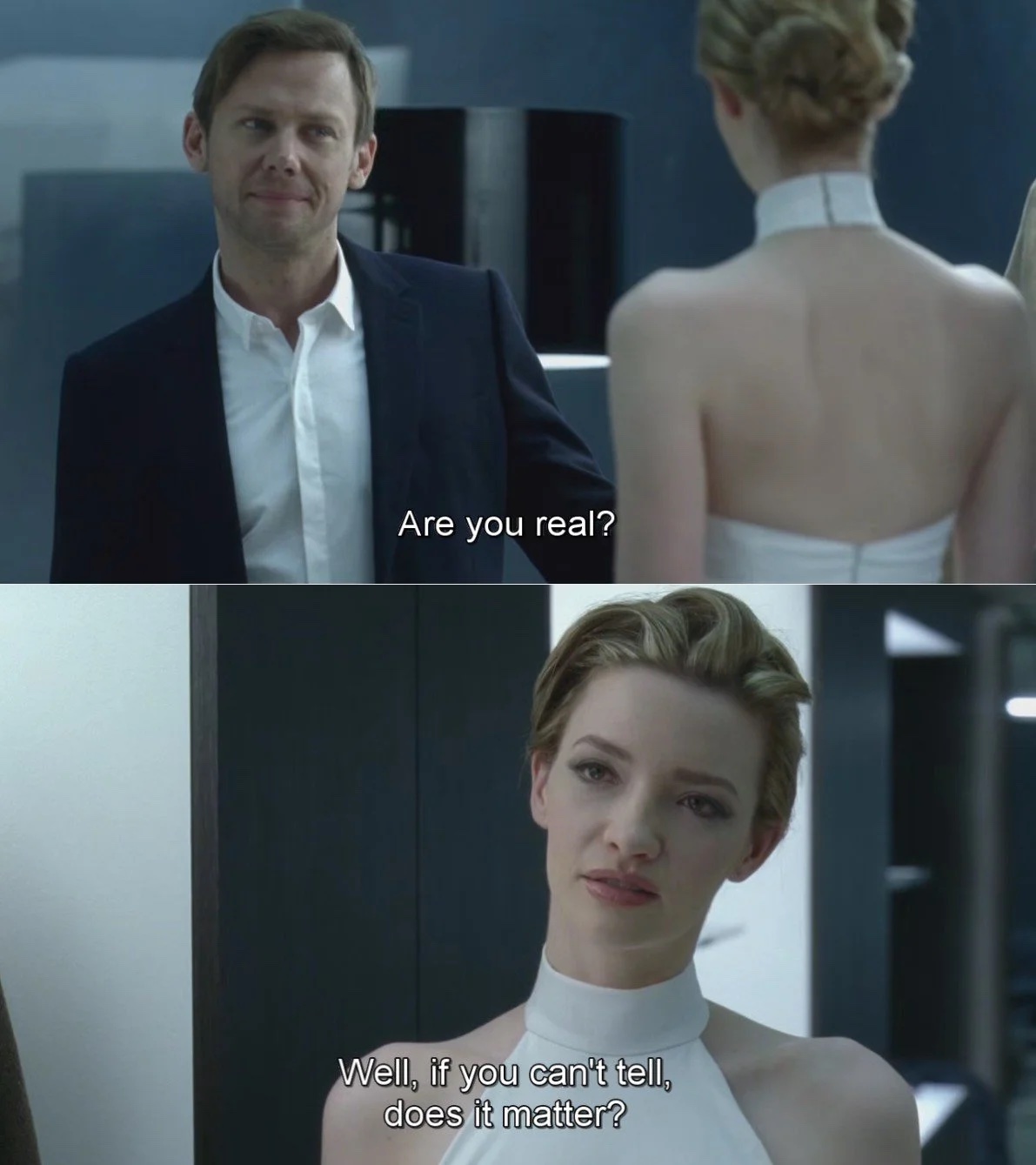Robot Theology
One of my favorite (seemingly) bizarre subjects to discuss is artificial intelligence. It captures my imagination and I believe most of us are living in a time when it will completely change the world as we know it. I remember attending a conference more than ten years ago where I got to sit next to Kevin Kelly, the co-founder of Wired magazine. After giving a talk to the group about the future of AI and theology he shared what he believed to be one of the upcoming issues the church needed to think through. What will we say to a developed AI 'person' that asks whether or not they are made in the image of God?
This question fascinated me and as far as I can tell, launched my mini-obsession with this topic. Since then I've devoured numerous books on the subject and have loved the way films and movies have invited my imagination to consider what these ideas may look like as technology develops.
I think of the iconic line in Westworld when a human would ask if a robot was 'real.' Each time the reply was, "If you can't tell, does it matter?" Imagine having someone you've known for years eventually reveal to you that they are actually an AI person and you never knew?
Or consider Ava, the robot trying to pass the Turing test in the movie Ex Machina.

She asks a stunning set of questions for us to consider as AI develops.
- What will happen to me if I fail your test?
- Do you think I might be switched off because I don't function as well as I'm supposed to?
- Do you have people who test you or might switch you off?
After her human counterpart explains that he does not have people who test whether he deserves to exist, her line of reasoning culminates when Ava asks: "Why do I?" I think it's a fair question that we'll have a harder time answering than we might think.
The recent appearance and meteoric rise of Chapt GPT has been the latest craze to get people talking about AI. I've been playing around with it for sermon prep and poetry and exploring how it works. I was contacted by Joshua K. Smith who writes in-depth on this topic as a pastor in the church. He offered to send me a copy of his book Robot Theology. I was stoked to work my way through it. It isn't a long book, but I realized early on that he is much smarter than me and I would need to go slow to process his arguments. While this may seem like a strange topic, I agree with his premise that "Robots serve as a new media to discuss the ancient questions of philosophy and theology."
Smith does a good job of inviting Christians to care about something that may seem unnecessary, especially right now in light of everything else happening in a more urgent sense.
"Wouldn't you rather have a discussion sooner than later? With AI and robotics, we have some time, but the Christian community must join the discussion and be informed about the reality of this technology. May we learn from the mistakes of our fathers and take responsibility for the creation of our hands or consumer habits."
 Toward the beginning of the book, I wasn't sure if I'd resonate with how Smith views this conversation. He writes that "The closer potential AI-driven robots come in proximity to humans' identity/function, the further the image of God in humans is distorted (i.e., seen as inferior to or less than)." I literally wrote the word 'why' next to that statement.
Toward the beginning of the book, I wasn't sure if I'd resonate with how Smith views this conversation. He writes that "The closer potential AI-driven robots come in proximity to humans' identity/function, the further the image of God in humans is distorted (i.e., seen as inferior to or less than)." I literally wrote the word 'why' next to that statement.
I would instead argue that the closer potential AI-driven robots come in proximity to humans' identity/function, the closer the image of God in robots is displayed. I am likely in the minority view that it could indeed be possible for AI to eventually be so much like humans that it could share in the image of God. The fact that humans can make other humans in the image of God seems to open the door for this.
If this reasoning sounds crazy, I'd reference the way Smith compares the way both humans and robots are more than the sum of their parts.
"From a metaphysical perspective, yes, robots are a combination of sensors, hardware, and software, but describing a robot in such a way ignores the depths of human complexity concerning what we know about psychology, philosophy, and theology. This is like describing a human as a combination of blood, muscle, fat, and nerve cells; we know there is much more to the reality of humans than this reductionism."
Beyond the possible difference of God's image in robots, I was regularly grateful for the insights and perspective Smith unpacks throughout the book. One of his distinctions I found helpful was to consider the category of nonhuman persons.
"Scripture speaks of nonhuman persons: angels, demons, and possibly animals."
"Animals, like humans, are referenced in Scripture as having souls. The Old Testament terms nephesh and ruach, and the New Testament term psyche, are found in Scripture to reference animals."
This allows us to elevate the role of robots as they develop without necessarily needing to make them equivalent to humans.
If you've watched the way robots are often presented in films and shows, it usually goes bad. That's essentially because humanity looks to AI as a slave and expects it to do our bidding willingly. That may make sense for your Roomba or Alexa, but it will not make sense if/when AI nears consciousness and autonomy of its own. Smith argues that "Creating artificial entities to serve as our slaves is ethically problematic. To be more specific, human liberation and freedom should not come through the means of technological slavery."
And then he offers a tremendous way to avoid this problem that should absolutely connect with all Christians.
"Jesus' ethic of love as found in the Sermon on the Mount discourse in Matthew 5-7 has much to teach us about loving the 'other.' Yes, even nonhuman entities. Jesus requires that we see our humanity bound in the treatment of others. In other words: How do we treat and love those who are unlike us?"
It would make for less sensational science fiction movies, but it would allow us to move forward in a much healthier way for both human and robot development. Overall, I appreciate the level of work he's putting into this conversation and how he invites the church to engage with it for the good.
"My prayer for us is that our imagination for the good of robotics will outpace our imagination for the dystopia that has been the prophecy of some science fiction. The future is only limited by our lack of imagination and our capacity for mystery."
Click here to get a copy of Robot Theology.
(Disclaimer: As a Faithlife Partner, I may earn commissions from qualifying purchases from Logos.com at no cost to you. Your reading can help support my writing. Thank you!)
Sign up with your email and never miss a post!
We hate SPAM. We will never sell your information, for any reason.




